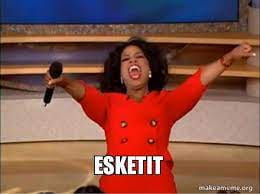Internet slang, or “netspeak”, has become an integral part of online communication, but its widespread usage has raised concerns about its impact on everyday language. While internet slang is convenient and can facilitate quick and informal interactions, it has also been associated with negative effects on written and spoken language. This editorial examines the detrimental impact of internet slang on language proficiency, communication clarity, and social interaction.
The pervasive use of Internet slang has been linked to a decline in language proficiency among individuals, particularly in the context of formal writing and professional communication. The abbreviated and non-standardized nature of internet slang can adversely affect an individual’s ability to articulate their thoughts coherently and meet grammatical standards. This erosion of language proficiency may negatively affect individuals’ academic and professional success and their capacity to engage effectively in written communication.
Furthermore, the prevalence of internet slang poses a significant challenge to communicate clarity. The use of acronyms, emoticons, and abbreviated phrases in online discourse can lead to misinterpretations and misunderstandings, especially in the absence of nonverbal cues and tone indicators. As a result, the reliance on internet slang may negatively impact the development of effective communication skills, both online and offline.
In addition to it’s impact on language proficiency and communication clarity, internet slang has implications for social interactions. The casual shorthand nature of “netspeak” can blur the boundaries between formal and informal discourse, potentially leading to a decline in politeness, respect, and struggles with interpersonal communication. The shift in social dynamics may contribute to a diminishing sense of civility and mutual understanding, fostering an environment of linguistic informality that may not align with the expectations of respectful and professional interaction.
Moreover, the use of internet slang has the potential to cause misunderstanding within diverse communities. The normalization of certain slang terms and expressions may reinforce linguistic biases and contribute marginalization of individuals who do not conform to the prevailing norms of online communication. This perpetuation of linguistic inequality has broader implications for social inclusion, diversity, and the recognition of linguistic variety within society.
In conclusion, while internet slang has undoubtedly transformed the use of digital communication, its widespread adoption has given rise to various negative effects on everyday language. The downfall of language proficiency, social interactions, and communication clarity calls for a critical examination of the role of internet slang in shaping contemporary linguistic practices =. As we navigate the complex interplay between digital communication and language norms, it is essential to consider the far-reaching consequences of internet slang and strive to preserve the richness and adaptability of language in the digital age.
Category: Uncategorized
Welcome To Evelyn N’s blog!
ESKETIT
